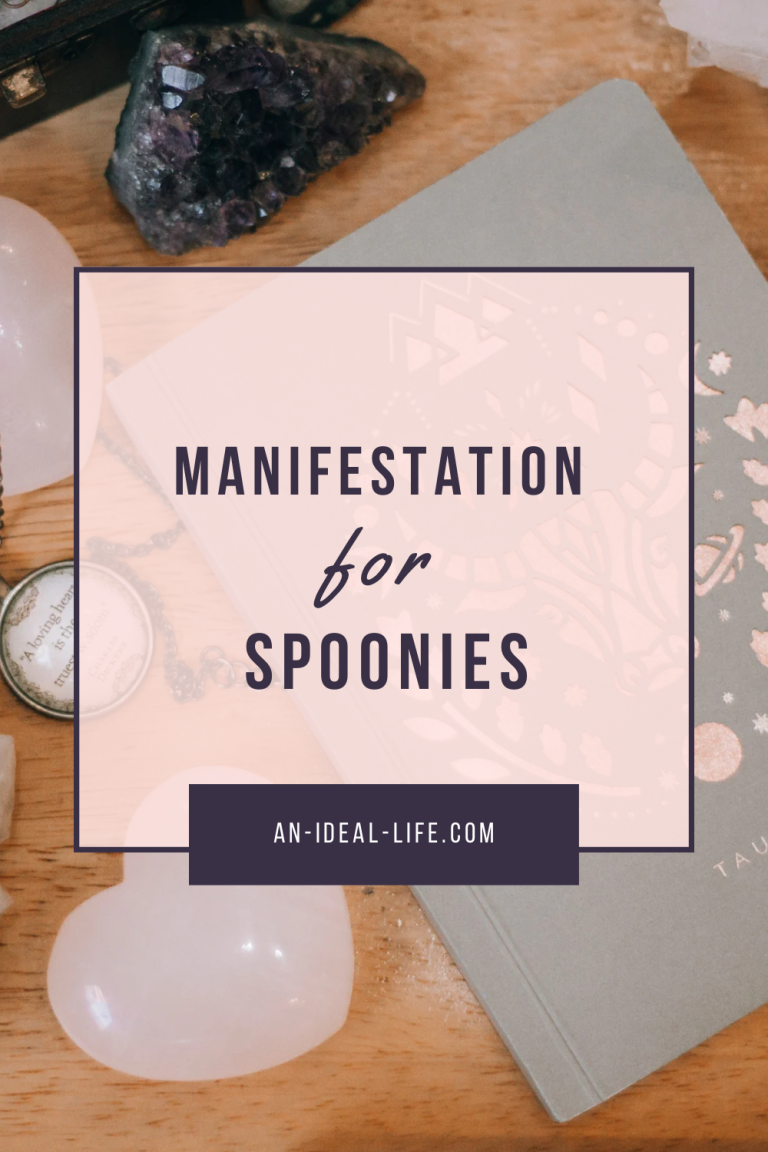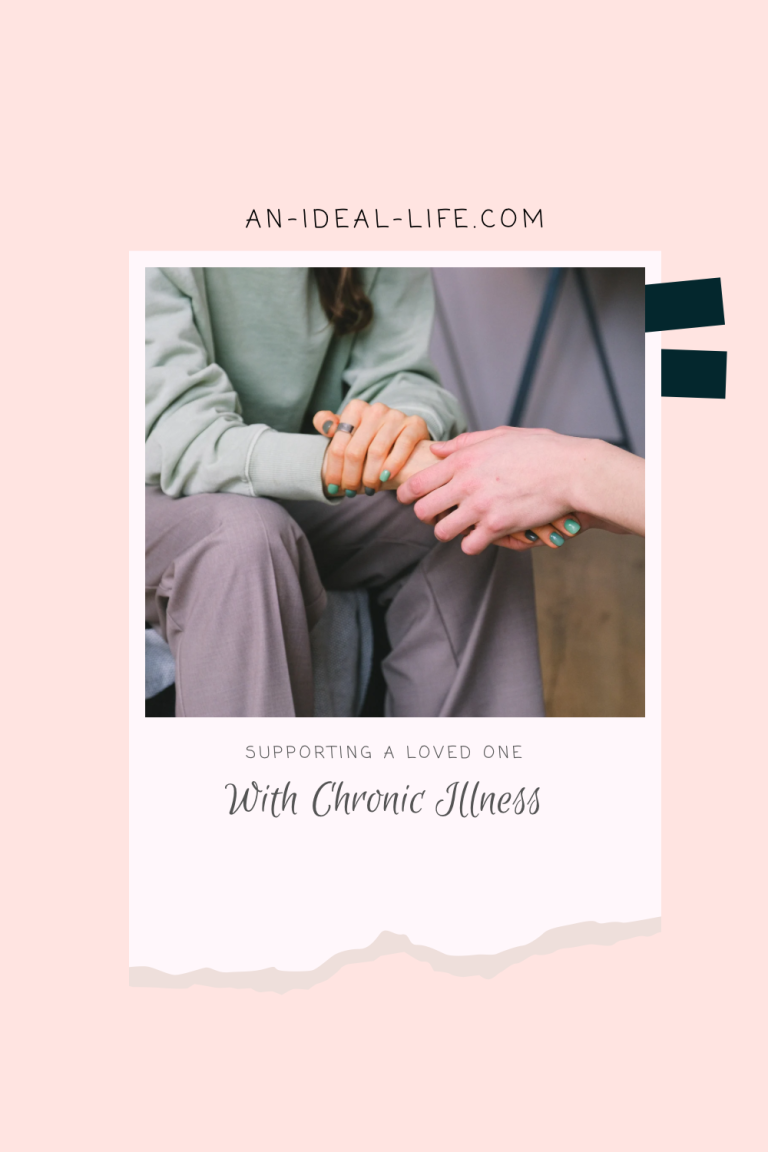Managing Chronic Pain With Self-Care Strategies and Lifestyle Changes
Living with chronic pain can be a challenging and isolating experience, impacting every aspect of your life – from work to socializing, and even your mental health. However, there are many self-care strategies and lifestyle changes for managing chronic pain that may help enhance your quality of life.
*This post may include affiliate or referral links. At no extra cost to you (and with a special reader discount, in some cases!), I’ll receive a small commission or other rewards to help support An Ideal Life. As an Amazon Associate I earn from qualifying purchases*
In this blog post, we will delve into various self-care strategies and lifestyle changes for managing chronic pain that can be incorporated into your daily routine, so you can take control of your health and lead an ideal life despite your symptoms.
The information in this blog post is provided for educational and informational purposes only and should not be construed as medical advice. The content is not intended to be a substitute for professional medical advice, diagnosis, or treatment. Always seek the advice of your physician or other qualified healthcare provider with any questions you may have regarding a medical condition. Never disregard professional medical advice or delay seeking it because of something you have read online. The author of this post is not a licensed medical professional and does not assume any liability for any actions taken based on the information contained in this post.
Identify your triggers.
The first step in managing chronic pain is to identify your triggers – the factors that exacerbate your pain. These may include physical activities, stress, certain foods, or even changes in the weather. Keep a pain diary to track your daily activities, moods, and pain levels. This will help you identify patterns and correlations between your pain and potential triggers, allowing you to modify your lifestyle accordingly.
Adopt a healthy diet.
Eating a balanced diet is crucial for overall health and can play a significant role in managing chronic pain. Focus on whole foods that are rich in nutrients, such as fruits, vegetables, whole grains, lean proteins, and healthy fats. Limit processed and sugary foods, as they can increase inflammation and worsen pain. Some people may also benefit from specific dietary changes, such as adopting a gluten-free or anti-inflammatory diet, based on their individual needs and sensitivities.
For me, sticking to a vegan lifestyle helps me feel better physically and emotionally. Cutting back on gluten helps too, but I find it a lot more difficult to stick to!
Prioritize sleep.
Quality sleep is essential for the body’s natural healing processes and can significantly impact your pain levels. Develop a consistent sleep schedule, create a relaxing bedtime routine, and optimize your sleep environment to support restorative sleep. Avoid caffeine, alcohol, and nicotine in the hours leading up to bedtime, and consider using white noise machines, blackout curtains, and comfortable bedding to create a sleep-friendly environment.
Engage in regular exercise.
I know, I know. While it may seem counterintuitive, engaging in regular physical activity (if you’re able) can help manage chronic pain by promoting the release of endorphins – the body’s natural painkillers. Choose low-impact exercises such as swimming, walking, yoga, or tai chi, and consult your healthcare provider to develop an appropriate exercise plan. Begin gradually and listen to your body, adjusting your activity levels as needed.
Manage stress.
Stress can exacerbate chronic pain, so it’s essential to develop healthy coping strategies. Consider incorporating relaxation techniques such as deep breathing, meditation, progressive muscle relaxation, or guided imagery into your daily routine. Prioritize self-care by engaging in hobbies or activities that bring you joy and foster relaxation.

Check out our chronic coloring book for a new spoonie-friendly hobby!
Connect with others.
Living with chronic pain can be isolating, but connecting with others who share similar experiences can provide invaluable support and understanding. Seek out local support groups, online forums, or social media communities focused on chronic pain, where you can share your experiences and learn from others.
Consider complementary therapies.
Complementary therapies can be a valuable addition to your pain management toolkit. Acupuncture, massage, chiropractic care, and physical therapy are just a few examples of therapies that may help alleviate chronic pain. Always consult your healthcare provider before beginning any new treatment, and ensure you’re working with a qualified practitioner.
Organize your living space.
Creating an organized and comfortable living space can minimize the physical demands of daily tasks, helping to reduce pain. Consider ergonomic furniture and adaptive tools designed to alleviate strain on your body. Make your most-used items easily accessible and declutter your living space to create a more relaxing environment.
Set realistic goals.
Managing chronic pain requires a balance between activity and rest. Set realistic goals for yourself and be patient with your progress. Break tasks into smaller, manageable steps, and celebrate your achievements, no matter how small. Recognize that there will be days when your pain may limit your ability to accomplish everything you planned, and practice self-compassion during these times.
Develop a pain management plan.
Work with your healthcare provider to develop a personalized pain management plan that addresses your specific needs and goals. This may include medications, physical therapy, and other treatments, in addition to the self-care strategies and lifestyle changes discussed in this post. Regularly review and update your plan as needed, and maintain open communication with your healthcare team to ensure your pain is effectively managed.
Educate yourself.
Understanding your chronic pain condition can empower you to make informed decisions about your care and treatment options. Educate yourself about your diagnosis, potential treatments, and coping strategies. Stay up-to-date on the latest research and advancements, and be an active participant in your healthcare journey.
Practice mindfulness and acceptance.
Practicing mindfulness and acceptance can help you manage the emotional and mental aspects of chronic pain. Mindfulness techniques, such as meditation and body scans, can help you develop greater awareness of your body’s sensations, allowing you to better manage your pain. Acceptance involves acknowledging your pain without judgment, recognizing that it is a part of your life, but not allowing it to define you.
Managing chronic pain is a multifaceted process that requires patience, persistence, and a commitment to self-care. By incorporating these self-care strategies and lifestyle changes into your daily routine, you can take control of your pain and improve your overall quality of life. Remember, you are not alone in your journey – connect with others who share similar experiences and lean on your support network for encouragement and understanding. With the right tools and mindset, you can lead a fulfilling, ideal life, despite living with chronic pain.







